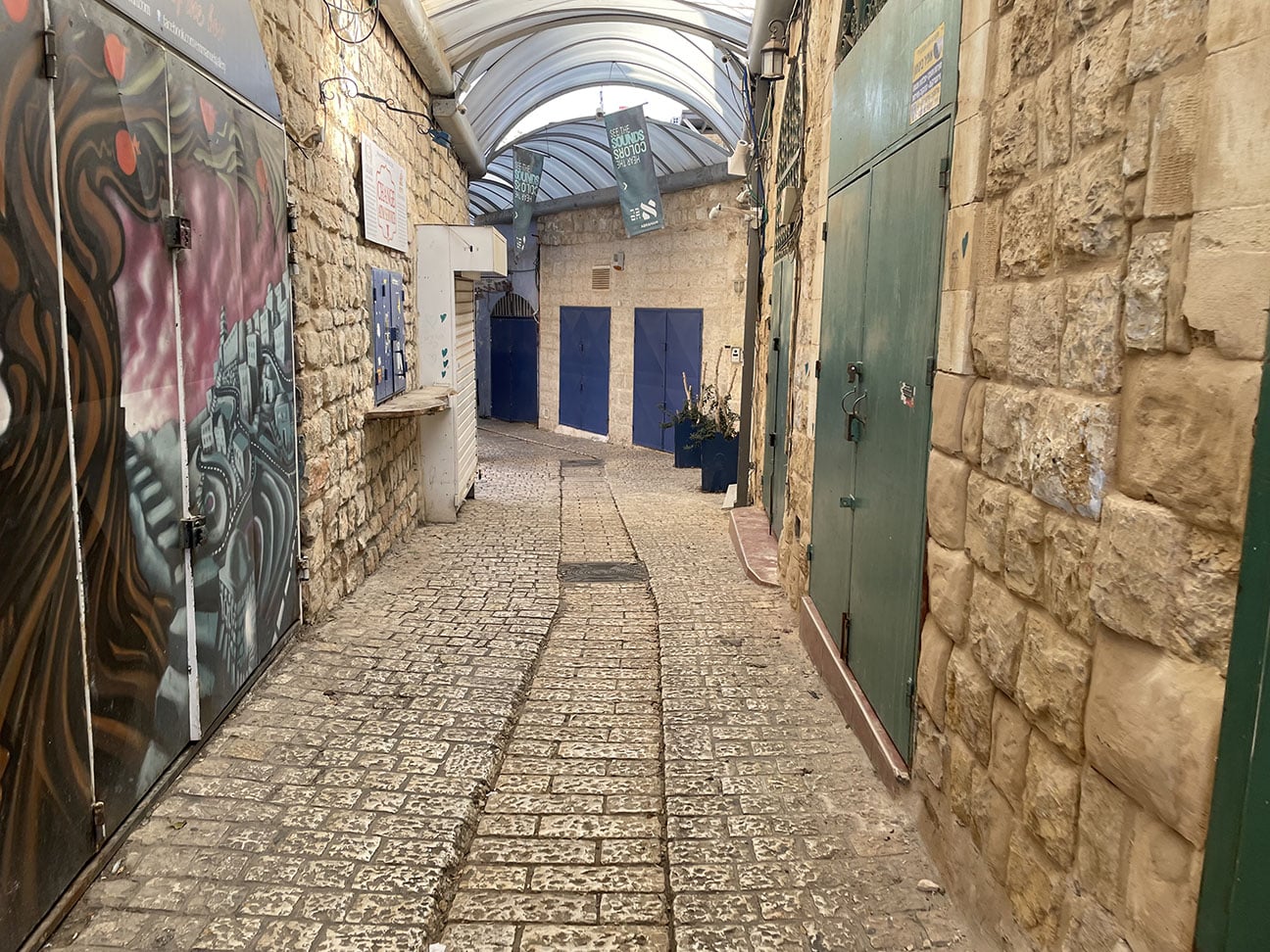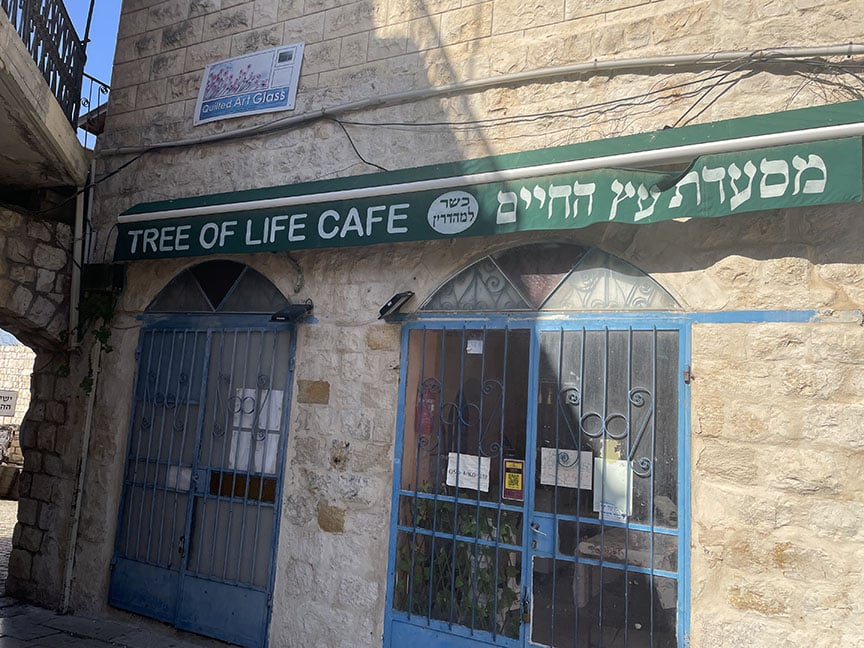
I had trouble believing that the famous Artists Colony in the mystical city of Tsfat, an ancient enclave nestled on a hill in Israel’s northern Galilee region, was shut down. I had trouble believing it because I didn’t want to believe it.
You see, I can’t imagine Tsfat without its numerous art galleries and hundreds of tourists crowding its narrow, cobblestone alleys. So I left the synagogue where I was attending a brit milah and headed down a long stretch of steps to see for myself.
Within a minute or two, instead of being welcomed by the usual procession of colorful galleries, all I saw was a row of metal gates lining an empty alley. But why should I be surprised to see these closed gates? After all, the war in Gaza has decimated the tourist business in Israel, and without tourists, the galleries of Tsfat are like houses of prayer without worshippers.
The numerous houses of prayer in Tsfat, because they depend on the locals, are immune to tourism. So everything and anything religious, from Talmudic study halls to yeshivot to Chassidic shtibls, are proudly open. It’s been that way since the 16th century, when Kabbalistic scholars and other Jews fled the Spanish Inquisition and made Tsfat their spiritual mountaintop home.
These days, this religious part of Tsfat is pretty much all one can see. Even the falafel joints and cafes in the little town square of the Old City, where I usually get my Turkish coffee fix, are closed. (The only place opened in the square, ironically, was a “Tourist Information Center.”)
There is a strange sadness to seeing Tsfat without its artistic side, without the multitude of tourists, young and old, many from America, mingling with the religious locals.
On my last visit, in July 2022, as the world was recovering from COVID lockdowns and isolation, I wrote about Tsfat as the “antidote to Zoom.” Everything about this town, I observed, encourages you to go out and walk and live life in-person.
“Everyone is walking, either with a purpose or just to stroll,” I wrote. “Many of the locals are religious Jews walking to their synagogues or going food shopping, while tourists and secular Jews will stroll through the art colony and hang out at cafes or juice bars.”
Tsfat is a place where the Torah scholars need the artists, the artists need the Torah scholars and everyone needs the tourists.
This natural mingling between opposite poles of a society is what moved me. From the most religious to the most secular, everyone was walking on the same ancient stones, walking to synagogues and art galleries alike, all of them pedestrians created in the image of God.
As I write today, the absence of these tourists has triggered an additional tinge of sadness– it has hurt people’s livelihood. Tourism is by far the number one source of income in Tsfat. The loss of that income stings, especially given the large families among the locals. It’s a good thing people here have so much faith; it gives them a sense of purpose, not to mention hope.
We often forget how dependent we are on one another. Tsfat is a living reminder that in a world that prides independence, Judaism also values dependence. We’re seeing a stunning example of that interdependence in the wake of October 7, with the outpouring of support for Israel from Jews around the world. I’ve met rabbis in Tsfat who make regular visits to the troops to bring them supplies and comfort.
We need one another, and that is a good thing.
The religious locals in Tsfat need the secular tourists who bring their money into their city, just as the secular tourists need the soulfulness of the city that gives it its magic. Tsfat is a place where the Torah scholars need the artists, the artists need the Torah scholars and everyone needs the tourists.
I can imagine that right now, the houses of prayer in Tsfat must be praying overtime to beseech God to bring things back to normal. Of course, in this ancient and quirky city in the hills of Galilee, normal is anything but normal.























 More news and opinions than at a Shabbat dinner, right in your inbox.
More news and opinions than at a Shabbat dinner, right in your inbox.